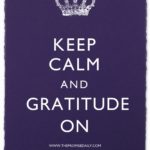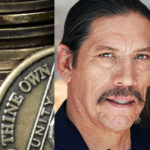reblogged from The Fix:
 I was in my Greenwich Village apartment on MacDougal Street, a block from Washington Square, coming out of a blackout when I saw that I’d ripped apart my art portfolio and scrawled suicidal song lyrics on the pieces of shredded photos. A tarantula writhed on my dresser while hallucinated cockroaches scampered on the floor. I reached across ashtrays, empty bottles of Bacardi and crumpled coke packets for the phone, and called my cousin for help. She showed up in an hour, got me packed, got the two of us on a plane to Florida and checked me into a rehab.
I was in my Greenwich Village apartment on MacDougal Street, a block from Washington Square, coming out of a blackout when I saw that I’d ripped apart my art portfolio and scrawled suicidal song lyrics on the pieces of shredded photos. A tarantula writhed on my dresser while hallucinated cockroaches scampered on the floor. I reached across ashtrays, empty bottles of Bacardi and crumpled coke packets for the phone, and called my cousin for help. She showed up in an hour, got me packed, got the two of us on a plane to Florida and checked me into a rehab.
The most important woman was my sponsor who gave me nothing to rebel against. She didn’t judge me nor tell me what to do.
It was the women at that Hazelden rehab in West Palm Beach who surrounded me like mother hens. My counselor Mary, the staff, and other recovering women helped me burst open the walls of denial. After 31 days, I came back to New York and found an AA meeting that was a 15-minute walk from home, where I counted my days of sobriety. There I met still more women who helped to change my life.
The most important woman was my sponsor who gave me nothing to rebel against. She didn’t judge me nor tell me what to do. She just listened and responded only with what had worked for her. She took me through the steps and served as my protector—I mean, let’s face it, AA is not a hotbed of mental health. It’s a microcosm of society where some are sicker than others. I was 26 with the maturity of an 11-year-old. My instincts were really off.
For example, there was this guy Dan with five years sobriety who I thought was my friend. The people at St. Luke’s treated me like their little sister. There was so much love. I felt everybody was looking out for me. It was wonderful and new and so disarming. One day, Dan asked me to come see his artwork because he’d heard I was an artist. It was like, “Hey, do you want to see my etchings?”
As with many newcomers to AA, the sudden absence of drugs and booze had rendered me socially paralyzed. I was also terribly lonely without my old drinking and drugging buddies, and Dan with five years was my AA friend, right? So I said, “Sure.” We went to his apartment and he showed me his mediocre paintings. I was feeling safe, like being with a big brother. Then he said, “Wow, you seem really tense,” and began to massage the back of my neck. I said, “Yeah, I’m really anxious. I’m always anxious.”
“Well then,” he said, “let me give you a massage.” I said, “Okay,” as he began massaging the back of my neck.
“You know. I really can’t do this so well with that in the way. Why don’t you untie your halter?” he asked. All of a sudden, a sour creepiness fell on the scene. Hey, wait a minute, I thought. “No,” I said, “I’m fine like this.”
“Why don’t you lie down and I’ll give you a great massage,” he replied.
I did but when he began to untie the bow on my halter that’s when I thought, Uh-oh, I better get out of here. I mumbled some incoherent excuse, stumbled out the door, and called my sponsor from a corner payphone. I couldn’t shake the feeling I’d gotten myself into that situation. I was desperate for people to like me. “Was that weird,” I asked her, “or am I being paranoid?” My sponsor reassured me I was not at fault, and that this bozo was way out of line to invite me to his apartment alone. She was livid.
The next time she saw Dan, she chewed him out good. She told him to quit 13-stepping and leave vulnerable young girls alone. I loved my sponsor for having my back and protecting me. It was as though I’d been blessed with a sister in whom I could confide. It wasn’t until years into sobriety that I came to realize she was just following the suggestions of AA to help someone else to ensure her own sobriety, yet at the time it all seemed so incredibly selfless. AA was the closest I’d come to unconditional love.
The people I knew before sobriety were all drug dealers, bartenders and people to get high with. I wanted to meet new people but was too damaged and scared. I felt like an adolescent at a new school but the only thing that my sponsor ever insisted I do was play sober softball. “I’ve never said you had to do anything but you need to sign up to play sober softball and I’ll do it with you.” This was a busy woman, working and going to school and in a relationship but here she was taking time out of her jam-packed schedule to help me, so I agreed.
Everyone chipped in five dollars to rent a field for the season at the East River. Every Sunday after the game, the group went out for brunch at a coffee shop near Astor Place. One day, a guy named Sandy asked me if I wanted to go out for coffee after the game. I was still counting days, trying to mindlessly follow the herd and not think too much. “Sure,” I said then asked a few other players, “You coming out for coffee?” When Sandy noticed the group getting ready to go for brunch with us, he got really mad. “I didn’t ask you and a crowd. I asked if you wanted to go for coffee.” I was so confused; I asked my sponsor what was going on. She said, “He was trying to get you alone. Just another guy trying to 13-step you. Don’t worry about him. You just hang out with the group.”
One Sunday at the diner, one of the guys asked me how I was. “I’m depressed,” I said. “And I feel like killing myself.” He patted me reassuringly on the back, smiled and said, “Me, too. Can you pass the salt?” It was reassuring to know I’d found my people.
My sponsor often went with me to AA events. At one party, I had on a tiny snippet of a black dress so my sponsor took off her sweater and put it around my shoulders. “Cover up,” she said. It was the nicest way to tell me that I was dressed inappropriately.
My sponsor wasn’t the only AA woman to care for me. Lots of them told me about the suggestion to stay out of relationships in the first year because more people slip over a broken heart than for any other reason. They strongly suggested I “build the foundation of the house” of sobriety. It was explained to me that when relationships don’t work out, the newly sober people tend to fall apart and go on a bender or leave AA altogether. I wanted to be a good AAer and take suggestions but that one was hard for me to adhere to. I was so used to having guys in my life. When I finally had a year I figured, “Yee-ha, I’m free!”
It was time to go about the serious business of looking for romance. I enjoyed going to the Soho group, which met three times a week. It was huge and social. A speaker would tell their story, then afterwards everybody would break into tables of eight. One night, I sat down only to see there were seven guys at the table that I’d dated. I was like, “Oh my god.” I got up and fled for a table of women. That’s when I decided to look for an all-women meeting.
The women’s meeting on West 4th Street at the Methodist church was a block from Washington Square. It became a regular staple during my first 10 years of sobriety. After college I hadn’t had women friends. I gravitated towards guys who bought me drinks and paid for cocaine, in between relationships with a boyfriend—usually a drug dealer—who took care of me financially. To make friends with women was amazing.
I was used to the club scene where people look you up and down and the most you’d get would be a head nod of acknowledgment. Everybody was too cool to smile and the meaner you looked, the cooler you seemed. These AA women would hug me. And often it was right after I’d been ranting about AA: “This doesn’t work. I hate this and I wish everybody would shut up about the God thing.” They’d be like, “It was great to hear you. I totally agree.” It was startling and I’d leave thinking, “These people really like me.” I forged important friendships there that have lasted for more than 25 years.
One day at a meeting, I accidentally bumped into this 6’5” ex-boxer turned actor. He looked down at my 5’2” frame and called me a “bitch.” He looked like he was going to haul off and hit me. That was scary. But out of the corner of my eye I saw my sponsor waving me over. When I sat down next to her, another female friend leaned over and said, “It’s no use fighting with a crazy person. You can’t win.”
There were a few more of these wacky scenarios over the years, but they were just isolated incidents in an otherwise safe AA-going existence, and I met plenty of AA men who became— and remained—good friends. Then AA girl met AA boy on AA campus. I fell hard and so did he. We dated for a couple years, then married, and now we shake our heads with gratitude and disbelief. After the train wrecks we came from, going on eight years together and loving it—loving each other and sobriety—is no small feat.
Dee Young is a pseudonym for a writer in New York.










